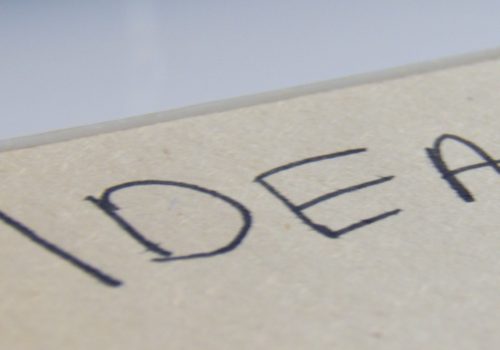1. Scenario: You’re in a job interview and you get asked – “What do you least like about being in sales?” A thoughtful salesperson is likely to do which of the following:
a) Say, “What?!”
b) Say, “A prospect who is not interested in buying at all and simply wants to gather competitive intelligence.”
c) Say, “On this day, I thee wed.”
2. Scenario: You’re in a job interview and you are asked – “What do you least like about being in sales?” A great salesperson is likely to do which of the following:
a) Not answer the question because the interviewer can’t be serious
b) Huff and puff
c) Answer by admitting that sales can be tough if you miss your goal
3. Scenario: You’re in a job interview and you get asked – “What do you like least about being in sales?” A high-performing salesperson is likely to do which of the following:
a) Respond, “I don’t focus on my dislikes day to day, instead I focus on the big picture of helping my clients year to year.”
b) Respond, “Dislike is light, I hate and that’s how I operate.”
c) Respond, “Having to get a new job whenever I blow kisses to my customers.”
4. Scenario: You’re in a job interview and you get asked – “What do you like least about being in sales?” A good salesperson is likely to do which of the following:
a) Say, “When management pressures its salespeople to make a sale regardless of customer’s needs.”
b) Scramble some eggs right on the table.
c) Grill some chicken with some lemon slices and pass it to the interviewer.
5. Scenario: You’re in a job interview and you are asked – “What do you like least about being in sales?” A great salesperson is likely to do which of the following:
a) Say, “You got nothing on me.”
b) Say, “When a company’s product fails to work as advertised.”
c) Say, “I’m the most talented person you’ll ever hire, you can bet your bottom dollar!”
6. Scenario: You’re in a job interview and you are asked – “What do you like least about being in sales?” A thoughtful salesperson is likely to do which of the following:
a) Reply, “When a company forces its salespeople to focus more on the product features than the product’s benefits to customers.”
b) Reply “I love how that shirt looks on you.”
c) Reply “Here’s my cell phone number, we should go out this weekend, just the two of us.”
7. Scenario: You’re in a job interview and you are asked – “What do you like least about being in sales?” A successful salesperson is likely to do which of the following:
a) Say “You know I was irresistible in high school.”
b) Say, “When a company fails to invest in sales training.”
c) Moan
8. Scenario: You’re in a job interview and you get asked – “What do you least like about being in sales?” A high-performing salesperson is likely to do which of the following:
a) Talk through the nose
b) Say, “When the sales manager discourages any sharing of best practices between sales associates
c) Pull out a jump rope and start jumping around the room
9. Scenario: You’re in a job interview and you get asked – “What do you least like about being in sales?” A high-performing salesperson is likely to do which of the following:
a) Say, “When I get a promotion.”
b) Say, “When a company ignores sales reinforcement training after onboarding.”
c) Purr like a cat
10. Scenario: You’re in a job interview and you are asked – “What do you least like about being in sales?” A productive salesperson is likely to do which of the following:
a) Say, “I don’t like it when my spouse calls me at work…so annoying.”
b) Reply, “An environment where you’re expected to sell but you’re not given the tools to sell.”
c) Respond, “Everything!”
11. Scenario: You’re in a job interview and you are asked – “What interests you most about this sales position?”
A good salesperson is likely to do which of the following:
a) Say, “I’m not really sure, just wanted to give this thing a spin.”
b) Say, “I find your company’s product easy to use and I can’t wait to share it with others.”
c) Say, “Nothing about the position is interesting; I’m more interested in hooking up with all these attractive people at the office.”
12. Scenario: You’re in a job interview and you get asked – “What interests you most about this sales position?” A great salesperson is likely to do which of the following:
a) Say, “The opportunity to leverage my prior sales experience.”
b) Acting like I’m working from home
c) Reply, “This is something to hold me over until my dream job becomes available next month.”
13. Scenario: You’re in a job interview and you are asked – “What interests you most about this sales position?” A successful salesperson is likely to do which of the following:
a) State, “The opportunity to not work too hard before I retire.”
b) State, “I like that I can look my customers in the face and lie to them.”
c) State, “Learning a new sales process to add to my current skills.”
14. Scenario: You’re in a job interview and you get asked – “What is most interesting to you about this sales job?” A great salesperson is likely to do which of the following:
a) Blow a whistle
b) Give an answer that relates to a key expectation of the job
c) Mimic the interviewer’s voice
15. Scenario: You’re in a job interview and you get asked – “What is most interesting to you about this sales job?” A great salesperson is likely to do which of the following:
a) Point to the company’s competitive advantage as a motivating factor
ab) Point to the interviewer’s head, shoulders, knees, and toes
c) Take off a wedding ring and unbutton a shirt
16. Scenario: You’re in a job interview and you get asked – “What is most interesting to you about this sales job?” A great salesperson is likely to do which of the following:
a) Highlight hair
b) Confess that you made up one of the bullet points in your resume
c) Highlight expertise in the industry
17. Scenario: You’re in a sales job interview and you are asked – “What is most interesting to you about this position?” A thoughtful salesperson is likely to do which of the following:
a) Share an appreciation for the company’s customers
b) Share an appreciation for the interviewer’s lips
c) Say randomly, “Ignorance is bliss I tell ya!”
18. Scenario: You’re in a sales job interview and you are asked – “What is most interesting to you about this position?” A great salesperson is likely to do which of the following:
a) Comment on your ex’s fragrance
b) Compliment the company’s new growth strategy and how you envision being a part of that
c) Compliment the paper quality of your resume
19. Scenario: You’re in a sales job interview and you get asked – “What is most interesting to you about this position?” A confident salesperson is likely to do which of the following:
a) Cower
b) Yawn
c) Respond
20. Scenario: You’re in a sales job interview and you get asked – “What is most interesting to you about this position?” A confident salesperson is likely to do which of the following:
a) Read out prepared remarks from a magic teleprompter
b) Say, “Being part of a dedicated sales team.”
c) Run away
21. Scenario: You’re in a job interview and you get asked – “What is more important, a quality product or excellent customer service?” A good salesperson is likely to do which of the following:
a) Say, “In my experience, a quality product and excellent customer service go hand in hand.”
b) Say, “In my experience, only money really matters.”
c) Say, “In my experience, hmmm, I have no experience.”
22. Scenario: You’re in a job interview and you get asked – “What is more important, a quality product or excellent customer service?” A prepared salesperson is likely to do which of the following:
a) State, “Expensive products that help me hit my sales goal are what I care about.”
b) State, “I’m not ready for that question, can we do this interview tomorrow?”
c) State, “I believe a quality product is the first step in excellent customer service.”
23. Scenario: You’re in a job interview and you get asked – “What is more important, a quality product or excellent customer service?” A thoughtful salesperson is likely to do which of the following:
a) Say, “Nothing is as important as my first paycheck.”
b) Say, “Excellent customer service leads to future sales, without it, products will eventually stop selling.”
c) Ask for a restroom break
24. Scenario: You’re in a job interview and you get asked – “What is more important, a quality product or excellent customer service?” A thoughtful salesperson is likely to do which of the following:
a) Reply, “Customers tend to buy the superior product and customer service is a bonus.”
b) Reply, “Customers never know what is important to them so I don’t worry about it.”
c) Reply, “I’m a hustler, I’m a… I’m a… a hustler.”
25. Scenario: You’re in a job interview and you are asked – “What is more important, a quality product or excellent customer service?” A good salesperson is likely to do which of the following:
a) Ignore the question and stare up at the ceiling
b) Request to rub the interviewer’s back
c) Give an example for how customers expect both
26. Scenario: You’re in a job interview and you get asked – “How much do you expect to get paid?” A confident salesperson is likely to do which of the following:
a) Say, “1 zillion dollars.”
b) Ask, “Can you afford me?”
c) Say, “My research indicates that positions like this one pay $X to $Z and something in that range would be acceptable to me as a starting salary.”
27. Scenario: You’re in a job interview and you get asked – “How much do you expect to get paid?” A confident salesperson is likely to do which of the following:
a) Say, “My salary requirements are flexible and I know my experience will add value to your company so I trust I will be compensated accordingly.”
b) Say, “My friend told me that you all have a lot of cash, so can I get some of that?”
c) Say, “Hold on, let me hit that real quick.”
28. Scenario: You’re in a job interview and you get asked – “How much do you expect to get paid?” A confident salesperson is likely to do which of the following:
a) State, “I don’t expect to get paid at all… yeah right.”
b) State, “I expect to get paid based on my experience and education.”
c) State, “I expect to get paid based on my toned muscles and shaved armpits.”
29. Scenario: You’re in a job interview and you get asked – “How much do you expect to get paid?” A goal-oriented salesperson is likely to do which of the following:
a) Say, “I expect to get paid based on my results at the end of each sales period.”
b) Say, “I got no expectations because my ex took everything from me.”
c) Ask, “Do you all flush the toilet in this building?”
30. Scenario: You’re in a job interview and you get asked – “Why would you accept this job for less money?” A thoughtful salesperson is likely to do which of the following:
a) Say, “I can’t handle all the stress of a higher paying job.”
b) Say, “This job will allow me to refine skills and complete tasks that I’m more interested in at this stage of my career.”
c) Say, “Man, I have a lot of mouths to feed.”
31. Scenario: You’re in a job interview and you get asked – “Why would you accept this job for less money?” A thoughtful salesperson is likely to do which of the following:
a) State, “I am unreliable so I figured that if you all paid me less, then you wouldn’t rely on me too much.”
b) State, “I don’t even know, I was just asking myself that.”
c) State, “My lowered level of expenses now permits me to take on a job more in line with my true interests.”
32. Scenario: You’re in a job interview and you are asked – “How do you handle stress?” A great salesperson is likely to do which of the following:
a) Say, “Honestly, I don’t, I just sweep stress under a rug.”
b) Say, “I stay focused because I have learned that working under pressure means there are clear deadlines to meet.”
c) Get stressed out and start hyperventilating right there during the interview
33. Scenario: You’re in a job interview and you get asked – “How do you handle stress?” A great salesperson is likely to do which of the following:
a) Say, “I stay calm because I actually enjoy working in a fast-paced environment.”
b) Stay silent and see if the interviewer will move on to the next question
c) Describe how you believe every hour is happy hour so you try to drink as often as possible.
34. Scenario: You’re in a job interview and you get asked – “How do you handle stress?” A great salesperson is likely to do which of the following:
a) Describe how you try to get a coworker to give you a massage in the right spot
b) Describe how nothing works for you as a stress reliever except pill popping
c) Describe how you take deep breaths and quick breaks to stay productive
35. Scenario: You’re in a job interview and you get asked – “How do you handle stress?” A high-performing salesperson is likely to do which of the following:
a) Delegate tasks so efforts can be directed at the most valuable activities
b) Watch TV on your phone
c) Download a sexy app
36. Scenario: You’re in a job interview and you get asked – “How do you handle stress?” A high-performing salesperson is likely to do which of the following:
a) Take vodka shots
b) Seek assistance from co-workers and manager as needed.
c) Go home and then call in sick
37. Scenario: You’re in a job interview and you get asked – “Have you ever had difficulty working with a manager?” A high-performing salesperson is likely to do which of the following:
a) Describe a tough situation with a manager and your role in resolving it
b) Tell a lie and say that you’ve never had any issues with anyone at all
c) Drink H2O
38. Scenario: You’re in a job interview and you get asked – “Have you ever had difficulty working with a manager?” A high-performing salesperson is likely to do which of the following:
a) Say, “I have found that if I take the time to talk with my manager at the beginning of a task, we can get off to a great start on the same page.”
b) Say, “I have no idea what you’re talking about.”
c) Say, “Hi, please can we start this interview over again.”
39. Scenario: You’re in a job interview and you get asked – “Have you ever had difficulty working with a manager?” A thoughtful salesperson is likely to do which of the following:
a) State, “It depends on how you define difficulty… know what I’m saying.”
b) State, “At the beginning of each sales period, I invest the time to note my manager’s expectations and revisit them throughout the period.”
c) State, “I know you have better questions than that Madam Interviewer.”
40. Scenario: You’re in a job interview and you are asked – “Have you ever had difficulty working with a manager?” A thoughtful salesperson is likely to do which of the following:
a) Reply, “Let’s take a tickle break, you tickle me and I tickle you.”
b) Reply, “Yes, no, yes, no, okay yes.”
c) Reply, “Communication is the antidote to difficulties at work, I work hard at communicating clearly with my manager, clients, and co-workers.”
41. Scenario: You’re in a job interview and you are asked – “Why are you leaving your current job?” A thoughtful salesperson is likely to do which of the following:
a) Play mind games
b) Say, “I want a job that would demand my best skills.”
c) Hesitate, then ask the interviewer to allow you to defecate
42. Scenario: You’re in a job interview and you are asked – “Why are you leaving your current job?” A thoughtful salesperson is likely to do which of the following:
a) Try to bribe the interviewer
b) Try to bathe the interviewer
c) Say, “I want to work for a company that invests in the continuing education of its salespeople.”
43. Scenario: You’re in a job interview and you get asked – “Why are you leaving your current job?” A thoughtful salesperson is likely to do which of the following:
a) Mention your interest in career advancement and how the interviewer’s company is a better fit for that.
b) Mention your interest in kissing co-workers during happy hour.
c) Mention your interest in licking ice cream with sexy people in the office parking lot.
44. Scenario: You’re in a job interview and you get asked – “Why are you leaving your current job?” A thoughtful salesperson is likely to do which of the following:
a) Say, “I was satisfied at my current job but found out the company is de-prioritizing sales reinforcement training while demanding more sales.”
b) Laugh nervously then start humming a hymn
c) Stare at the clock and ask the interviewer why it’s not moving
45. Scenario: You’re in a job interview and you get asked – “Why are you leaving your current job?” A productive salesperson is likely to do which of the following:
a) State, “I’m not ready for a new challenge; maybe I should stay at my current job.”
b) State, “That’s an interesting question, do I know you from another life?”
c) State, “I am ready for a new challenge.”




